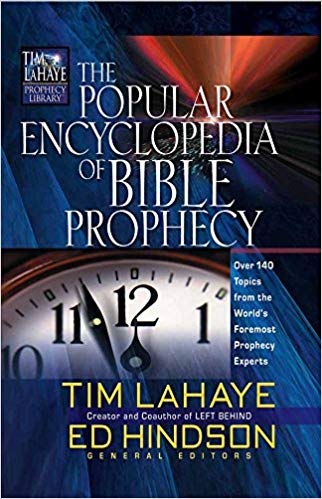ABRAHAMIC COVENANT Part III

THE POPULAR ENCYCLOPEDIA OF BIBLE PROPHECY
ABRAHAMIC COVENANT Part III
The New Covenant
The next unconditional covenant between God and Israel is the New Covenant. The covenant is new because it replaced the Old or Mosaic Covenant. Israel was unable to keep the Mosaic covenant, so God graciously
promised to give them a new covenant as well as a new heart to obey God. This covenant is recorded in Jeremiah 31:31-34: “Behold, days are coming,” declares the Lord, “when I will make a new covenant with the house of Israel and with the house of Judah, not like the covenant which I made with their fathers in the day I took them by the hand to bring them out of the land of Egypt, My covenant which they broke, although I was a husband to them,” declares the Lord. “But this is the covenant which I will make with the house of Israel after those days,” declares the Lord, “I will put My law within them and on their heart I will write it; and I will be their God, and they shall be My people. They will not teach again, each man his neighbor and each man his brother, saying, ‘Know the Lord,’ for they will all know Me, from the least of them to the greatest of them,” declares the Lord, “for I will forgive their iniquity, and their sin I will remember no more.”
Notice that God makes this covenant “with the house of Israel and with the house of Judah.” This statement clearly refers to the ethnic nation of Israel. Second, the statement “not like the covenant which I made with
their fathers in the day I took them…out of the land of Egypt” again clearly restricts the meaning of the statement to the physical descendants of Abraham through Isaac and Jacob. Third, this covenant has in view a
future restoration of the people not only as God’s people but as a people who were forgiven, regenerated, and serving the Lord. When the Lord Jesus Christ went to the cross, He established the New Covenant. We remember that in the celebration of the Lord’s table, Christ said, “This cup which is poured out for you is the new covenant in My blood” (Luke 22:20). The New Testament clearly teaches that the church is a beneficiary of the spiritual benefits of the New Covenant because of its relationship to Christ. The covenants that God made with Israel in the Old Testament promised that Israel would have an eternal kingdom in the location of the Land God promised to Abraham. While God warned them time and again that because of their disobedience they would be removed from the Land, at the same time He promised that He would restore them to the Land as His people under the rule of the Messiah, and they would serve Him. Israel has
never completely controlled the land God promised, and they have never returned to the Land under the conditions of the covenant, so the Old Testament promises and prophecies clearly foretold a future for Israel as an
ethnic, political entity with a special status as God’s people. This will be fulfilled when Israel submits to God spiritually.
PERMANENCE OF THE ABRAHAMIC
COVENANT
The Abrahamic covenant is directed to Abraham, Isaac, Jacob, and their descendants. It is repeated to them about 20 times in Genesis (12:1-3,7-9; 13:14-18; 15:1-18; 17:1-27; 22:15- 18; 26:2-6,24-25; 27:28-29,38-40; 28:1-4,10-22; 31:3,11-13; 32:24-32; 35:9-15; 48:3-4,10-20; 49:1- 28; 50:23-25). The Abrahamic covenant has been in force throughout the years and is still
a basis upon which God acts, even in our own day. Genesis 12–50 records the beginning of the historical outworking of the Abrahamic covenant. When people bless Abraham and his descendants, God blesses them. When
people curse Abraham and his descendants, God curses them. The outworking of the Abrahamic covenant continues throughout
the rest of the Old Testament. Scripture demonstrates God’s integrity in
history through His relationship with His chosen people Israel. As He promised in the Abrahamic covenant, God uses His dealings with Israel to leave His mark throughout history. Through Israel God gave His law, founded a nation, caused His presence to dwell among them, mediated His Word, and sent the Savior of the world. Through Israel God will work to preach the gospel throughout the whole world, invoke the second coming, and reign for a thousand years in Jerusalem, the place of His eternal glory.
Without Israel, the second coming cannot take place, since the nation must be present for this glorious event to occur. Thus, God’s promise to Israel is that they have an eternal permanence in history and throughout eternity
( Jeremiah 31:35-36). Thus says the Lord, who gives the sun for light by day and the fixed order of the moon and the stars for light by night, who stirs up the sea so that its waves roar; the Lord of hosts is His name: “If this fixed order departs from before Me,” declares the Lord, “Then the offspring of Israel also will cease from being a nation before Me forever.”Thus says the Lord, “If the heavens above can be measured and the foundations of the earth searched out below, then I will also cast off all the offspring of Israel for all that they have done,” declares the Lord.
The Abrahamic covenant is the springboard through which every promise of blessing originates, whether to the Jews, the Gentiles, or the church of God. Just because God’s promises have a wide-ranging scope does not mean that promises He made to Israel are not permanent and will not be kept. The force of the Abrahamic covenant is still in place today. God still blesses those who bless Israel and curses those who curse Israel. These promises
will come to a climax during the events of the tribulation period, leading up to the second coming of Christ and His glorious reign from Jerusalem for 1000 years.
—Thomas Ice
BIBLIOGRAPHY
Dean, Robert L. “Theonomy, the Mosaic Law and the
Nations” (unpublished paper).
Fruchtenbaum, Arnold. Israelology.Tustin, CA: Ariel Ministries,
1992.
Merrill, Eugene. ”A Theology of the Pentateuch.” In Roy
Zuck, ed. A Biblical Theology of the Old Testament.
Chicago: Moody Press, 1991.
Ross, Allen P. Creation & Blessing. Grand Rapids: Baker
Books, 1988.
Walvoord, John F. Israel in Prophecy. Grand Rapids: Zondervan,
1962.

